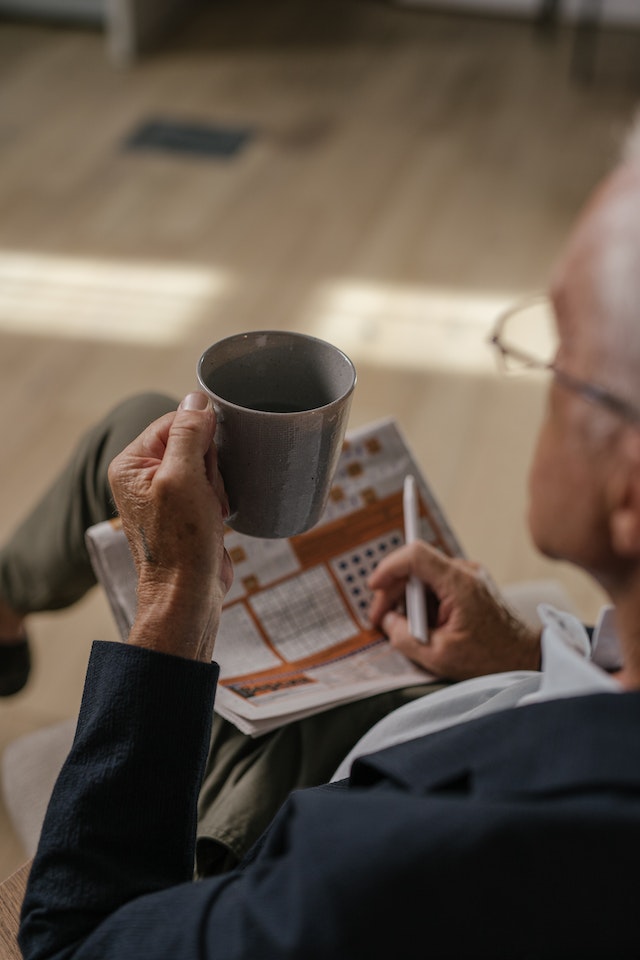
Older adults want to age in their current homes rather than seek out senior living arrangements outside the home. For many, maintaining a sense of independence is of the essence, so they prefer continuing to live in familiar places. Ageing in place allows them to maintain connections to their communities and friends with whom they’d lose contact.
Regrettably, homes aren’t built with safety in mind, so it’s necessary to make a few modifications to have peace of mind. It will most likely fall on the family to make the necessary changes. If your loved ones need more care, you must adapt your home to accommodate their needs.
From mitigating the risk of falls to making your place more accessible for walkers, there are many things you can do to provide a safe home for an ageing parent. Prevention is often described as common sense, but it’s not always easy to recognize what can cause danger. Household injuries are at an all-time high, so ensure you and your family are safe from everyday hazards.
Equally, you have a duty of care towards anyone on the premises. According to the experts at Personal Injury Claims UK, you’re liable for the losses if someone is injured on the property. For example, a courier can sue for a slip and fall if they sustain an accident on the driveway.
Taking a few basic safety measures can go a long way toward making a home safer and more comfortable to live in.
Create A Room Just For The Pet
Most homes have a pet because older adults enjoy companionship. Dogs and cats reduce stress, reduce blood pressure, and increase physical activity, to name but a few. Seniors benefit greatly from interacting with a pet, confirming the power of the human-pet bond. They’re the reason why they make it through the most challenging times in life. Nevertheless, owning a dog or a cat increases the risk of falling.
Dogs, in particular, rub your ankles, and this presents a danger for people whose sense of balance isn’t what it used to be. Therefore, it’s recommended to have a secure area for the pet if your elderly parents are living with you. You don’t need to get rid of your animal. Any space in the home can double as a pet room. If your elderly parent lives in a small apartment, install a baby gate.
Get Rid of The Rugs
In case you didn’t already know, rugs are very dangerous even though they add some excellent aesthetics to the place. They slide easily and pose a tripping hazard. Cleaning and exposure to moisture cause the rug to unflatten. To be more precise, the edges of the rug curl, so it’s no longer flush with the floor. The toe can easily catch the edge of the rug, and the next thing you know, you’re lying flat on your back on the floor.

Remove rugs (and carpets), going rug-less entirely, particularly if the floors are gorgeous. Wouldn’t it be a crime to cover up vintage tiles in a Spanish apartment? By keeping the floor clear of rugs, the room appears more spacious and airier, so it won’t feel cramped and disjointed. Accidents happen all the time. People spill drinks, track in dirt with their shoes, and drop food on the floor. Even with a professional’s help, some areas can’t be reached.
Light Up the Place
As we age, our eyes become less responsive to light, which can lead to various issues. Proper lighting is key to a safe living environment, so an underlit home can contribute to major falls, not to mention feelings of depression and anxiety. From the kitchen to the bathroom, improve the lighting and ensure accessible options for turning them on and off. You can install motion-activated lights for ramps, paths, and steps.
Make sure the entrances are well-lit so that your ageing parents can come and go safely and actually see where they’re going. Night lights can be installed in the hallway or in the bathroom. Try to use wireless lights or lights that can be enabled with integral wireless controllers and sensors to minimise tripping hazards caused by exposed cords and cables. All of the optical elements around the home should be working properly, so undertake regular checks to ensure the bulbs are still working.
Keep A List of Emergency Numbers Visible
We all battle fear. The greatest fear is your loved one getting hurt or suffering a medical emergency. You worry yourself sick. Did something happen to them? During a crisis, the details can fly out of your head, so you should write down important phone numbers – it can mean the difference between life and death. Living alone can be dangerous, so it’s a good idea to have a medical alert system to help ease the fear by monitoring your elder parent’s well-being.
Remove Fire Hazards from The Home
Last but certainly not least, remove fire hazards from the home. A cluttered kitchen can lead to a house fire, so there’s no better time than now to remove unnecessary items. Flames from cooking can reach flammable materials like flour, sugar, oil, etc. If not properly maintained, fireplaces can be another fire hazard due to the increased buildup of soot and creosote. Even a spark flying out of the chimney can cause a fire.
In case of a fire, an older adult isn’t able to react properly or move as swiftly as necessary, so do your best to reduce the odds of a fire taking place. Install smoke detectors in the basement, attic, and bedroom, and ensure they’re in proper working condition. The detectors sound at the same time, on all levels of the home, when a single unit detects smoke. Even if the fire causes the power to go out, the smoke detectors have a backup battery.
Conclusion
Homes aren’t normally designed with elder residents in mind, and given that many want to remain in their own homes for as long as possible, some changes are necessary to ensure independent living. If you aim for extensive remodelling, reach out to a contractor.



